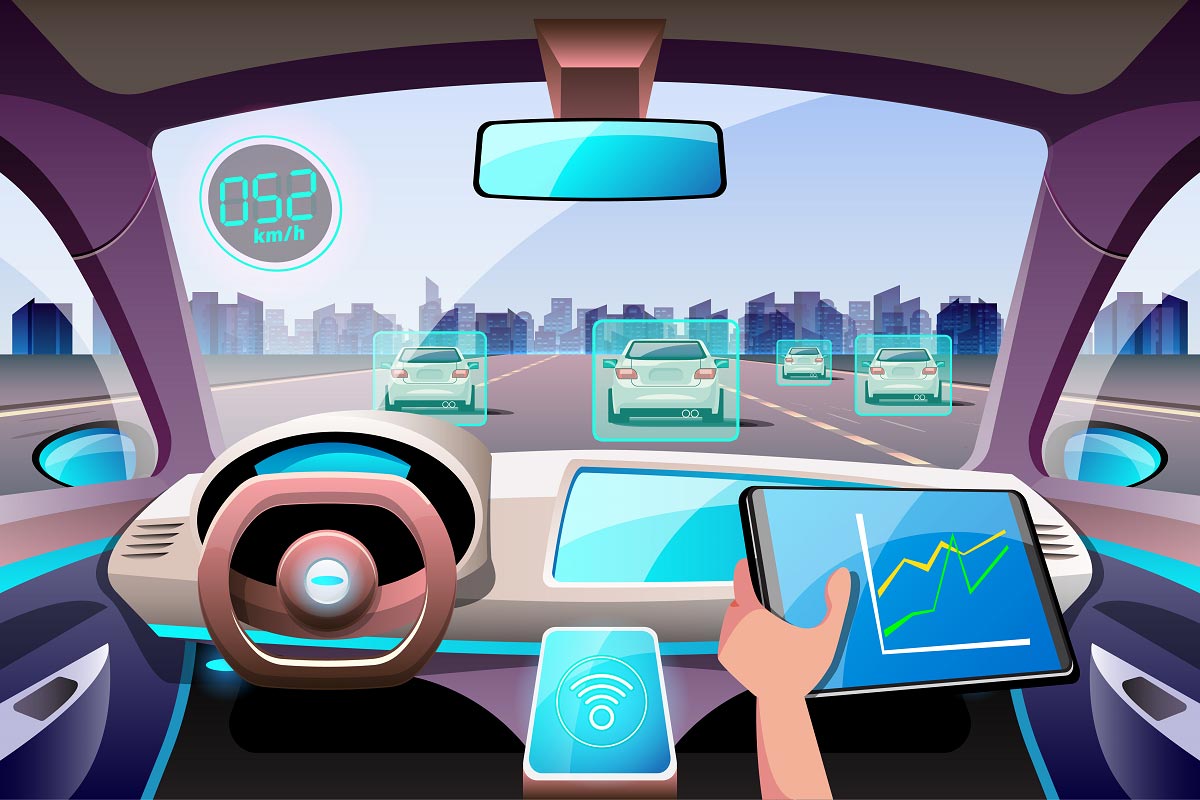
Self-driving cars, also known as autonomous vehicles, have been a topic of interest for many years and are poised to revolutionize the way we travel and live. With advancements in technology, self-driving cars are no longer a thing of science fiction and are becoming a reality. They are projected to have a significant impact on daily life and transportation as we know it. The purpose of this article is to explore the current state and projected growth of self-driving technology and to provide in-depth and accurate information on the potential impact of self-driving cars on daily life, including transportation efficiency, employment, and urban planning.
Current State and Projected Growth of Self-Driving Technology
Self-driving technology has made remarkable progress in recent years and is projected to grow rapidly in the near future. According to a study by KPMG, the global market for self-driving cars is projected to reach $556 billion by 2026. This growth is being driven by advances in artificial intelligence, machine learning, and computer vision, which have enabled vehicles to operate safely and efficiently on the road.
Waymo, Alphabet's self-driving car division, completed its 10 millionth mile on public roads in 2019, demonstrating the progress that has been made in this field. Major automobile manufacturers and technology companies are investing heavily in self-driving technology, and many are already testing autonomous vehicles on public roads.
Impact on Transportation Efficiency and Safety
Self-driving cars have the potential to greatly improve transportation efficiency, reduce traffic congestion, and lower the number of accidents. They can communicate with each other and with traffic infrastructure, optimizing traffic flow and reducing congestion. Additionally, self-driving cars are expected to be much safer than traditional vehicles, as they are not prone to human error, such as distracted or impaired driving.
According to the National Highway Traffic Safety Administration, 94% of traffic accidents are caused by human error, such as driver distraction, fatigue, or intoxication. By removing the human element, self-driving cars have the potential to greatly reduce the number of accidents and save lives.
Impact on Employment and the Labor Force
The rise of self-driving technology has raised concerns about the potential impact on employment, particularly for drivers. While it is true that self-driving cars have the potential to displace many traditional jobs, they may also create new opportunities and lead to a shift in the labor force.
For example, the widespread adoption of self-driving cars could lead to the creation of new jobs in the fields of technology and engineering, as well as in the maintenance and repair of autonomous vehicles. Additionally, the increased efficiency of transportation may lead to increased economic activity, creating new jobs in a range of industries.
Role in Reducing Carbon Emissions and Improving Urban Planning
Self-driving cars have the potential to play a significant role in reducing carbon emissions and improving urban planning. A report by the World Economic Forum predicts that autonomous vehicles could reduce the number of cars on the road by up to 90%, potentially freeing up valuable urban space for other uses.
Moreover, self-driving cars can be designed to be more energy efficient than traditional vehicles, potentially reducing their carbon footprint. This, in turn, could lead to reduced air pollution and improved public health.
Autonomous vehicles are capable of operating much more efficiently than traditional cars, which often get stuck in traffic or spend significant amounts of time idling in parking lots. This can lead to a reduction in emissions and an improvement in air quality, particularly in densely populated areas.
Furthermore, with the ability to safely navigate roads and highways, self-driving cars have the potential to reduce the number of cars on the road by up to 90%, according to a report by the World Economic Forum. This could free up valuable urban space for other uses, such as parks, bike lanes, or pedestrian walkways, making cities more livable and sustainable.
Privacy and Security Concerns
As with any new technology, there are also concerns about privacy and security when it comes to self-driving cars. Given the large amounts of data that autonomous vehicles generate and collect, there is a risk that this information could be used for malicious purposes, such as identity theft or surveillance.
Furthermore, self-driving cars are equipped with sophisticated sensors and cameras that can capture sensitive information about their surroundings, including images of people and buildings. This raises important questions about privacy and data protection, as well as the responsibility of autonomous vehicle manufacturers to secure this data.
Ethical Considerations
Finally, there are important ethical considerations to take into account when it comes to self-driving cars. For example, in the event of an accident involving an autonomous vehicle, who is responsible? Is it the driver, the manufacturer, or the software developer?
Additionally, there are broader questions about the role that self-driving cars should play in society. For example, should they prioritize the safety of passengers over pedestrians, or vice versa? How should they be programmed to handle ethical dilemmas, such as swerving to avoid a pedestrian or a car, if doing so would put the passengers in danger?
Conclusion
In conclusion, self-driving cars have the potential to revolutionize the way we live, work, and travel, by improving transportation efficiency, reducing traffic congestion, and lowering the number of accidents. However, there are also important challenges and considerations that must be taken into account, including the impact on employment, privacy and security concerns, and ethical considerations.
As we continue to explore the possibilities and limitations of self-driving technology, it's important to consider the full range of benefits and risks, and to work together to ensure that the future of transportation is safe, sustainable, and equitable for all.
Technology



